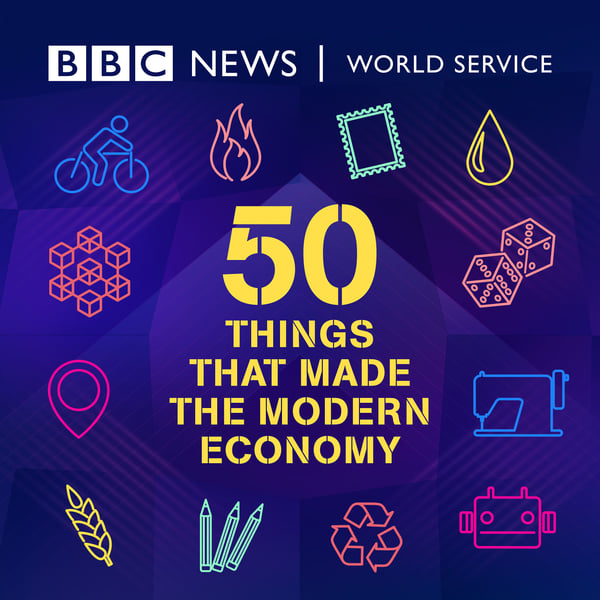Fast food franchise
50 Things That Made the Modern Economy
BBC
4.8 • 2.6K Ratings
🗓️ 6 January 2020
⏱️ 10 minutes
🧾️ Download transcript
Summary
Transcript
Click on a timestamp to play from that location
| 0:00.0 | The Way Ray Croc tells the story. When he encouraged the MacDonald brothers to open more hamburger restaurants, they winced. The year was 1954. |
| 0:15.0 | The place San Bernardino, California, then quiet town on the edge of the desert, some 50 miles east of Los Angeles. |
| 0:38.0 | Croc sold milkshake machines. Dick and Mac McDonald were among his best customers. Their restaurant was small but sold lots of milkshakes. Clearly they were doing something right. |
| 0:52.0 | But they didn't want to do more of it and Mac McDonald explained why. |
| 0:57.0 | We sit out on the porch in the evenings and watch the sunset. It's peaceful. |
| 1:04.0 | Opening more branches would be a headache, travelling around, finding locations, vetting managers, staying in motels, white bother. They were already making more money than they could spend. |
| 1:17.0 | That might sound reasonable to many people, but not to Ray Croc. |
| 1:22.0 | His approach was utterly far into my thinking. Croc later recalled. He convinced the brothers to let him expand their restaurant chain. |
| 1:34.0 | By the time Croc died, three decades later, McDonald's had thousands of restaurants, bringing in billions of dollars. |
| 1:45.0 | Which goes to show successful entrepreneurs aren't all the same. They want different things, they have different talents. |
| 1:54.0 | Take Dick and Mac. They were brilliant at figuring out more efficient ways to make hamburgers. |
| 2:03.0 | Working with a local craftsman, they invented a new kind of spatula, a new dispenser that squirted the same amount of ketchup and mustard every time. |
| 2:13.0 | A rotating platform to speed up assembling of burger, bun and condiments. |
| 2:18.0 | What Henry Ford had done for cars, the MacDonald brothers did for hamburgers and French fries. They broke down processes into simple repetitive tasks. |
| 2:30.0 | This meant they could turn out food quickly, cheaply and consistently. There was nothing else like it. |
| 2:39.0 | But when it came to the wider world, the brothers seemed to have been fairly clueless. When competitors started peering through the windows, taking out notepads and sketching plans, Dick and Mac laughed about it. |
| 2:53.0 | When anyone asked about those ingenious condiment dispensers, they'd cheerfully named their craftsman friend. None of them had bothered to patent the design. |
| 3:03.0 | Some wanted more than snatched sketches, so the brothers sold franchises after a fashion. For a one-off fee, you could buy blueprints to their building with the golden arches, a 15-page description of their speedy service system and a week's training. |
| 3:20.0 | After that, the franchisees were on their own. Dick and Mac didn't expect that their trainees would serve the same menu or even use the same name. |
| 3:30.0 | When their very first franchisee mentioned that he would also call his new restaurant, MacDonald's, Dick replied, |
| 3:38.0 | What the hell for? |
| 3:41.0 | Into this smooth running kitchen and half-baked franchising operation walked a man with different skills and desires. |
... |
Please login to see the full transcript.
Disclaimer: The podcast and artwork embedded on this page are from BBC, and are the property of its owner and not affiliated with or endorsed by Tapesearch.
Generated transcripts are the property of BBC and are distributed freely under the Fair Use doctrine. Transcripts generated by Tapesearch are not guaranteed to be accurate.
Copyright © Tapesearch 2025.

